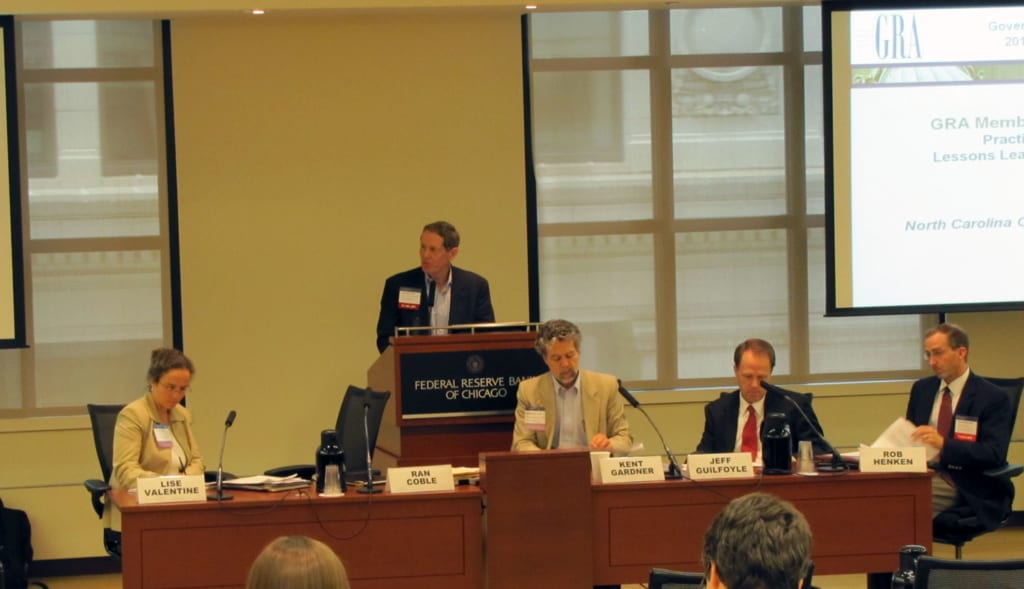
I moved back to North Carolina in 2005 after being away for a few years. My first full-time job back in our state was working for a public policy shop at UNC-Chapel Hill called the Program on Public Life.
Led by EdNC contributor Ferrel Guillory, the Program on Public Life sought to be a broker of research – to synthesize the work product from the universities and to frame it for the folks making decisions in Raleigh and Washington. It was a great gig – one that connected me to North Carolina and helped me start to understand how politics and government really work.
The N.C. Center for Public Policy Research was a must-read source for me. I read NC Insight and even helped with the occasional research project. Ran Coble is a public policy legend among the organizations in the Governmental Research Association, building an operating system for nonpartisan research in an environment that was everything but.
As the Center and EdNC began to discuss a new path for the Center’s future, EdNC CEO Mebane Rash and I began discussing how we could continue the Center’s legacy in the context of EdNC’s platform and mission. I have served on the EdNC board since its very beginning, and while our discussion continues, and depends in large part on how you want the Center to live on, we agree that it is worthwhile to preserve some of the core components the Center.
At EdNC, our first lesson in leadership is just start. So here we go. There is value to capture and insight to uncover. Over the next several months, the Center will seek to provide two consistent forms of weekly content.
You may have already seen our Fridays @ Five. That research builds upon the brokerage idea and is akin to EdNC’s daily news aggregation. As readers launch into their weekend reading, we hope to connect you with some interesting, policy-related ideas that may not yet be in the mainstream.
We will also publish a weekly feature that will dig a little deeper into public policy analysis along four themes: unpacking data, what’s working, what’s not working, and the next frontier for our state. These will vary in format and style, but the guiding principle will be to enhance our public policy discussion by connecting you with information, questioning how we frame issues, and getting you to help us connect these issues to the public in public policy.
In addition, we will try to preserve some of the data and features that the Center has historically tracked. For example, the Center published The Citizens’ Guide to the N.C. Legislature for nearly 40 years. Technology has allowed some of that work to be adequately produced and published by the N.C. General Assembly staff, so we will no longer publish the traditional guide. However, we will continue to maintain an online archive of old Citizens’ Guides and focus on tracking and updating data points that are not easily available through other sources.
As this work evolves, please let us know what you think. We want to provide content that builds on the Center’s foundation and brings new perspective to public policy.
Thank you for your support. We look forward to continuing to be part of the discussion.
Weekly Insight Education


